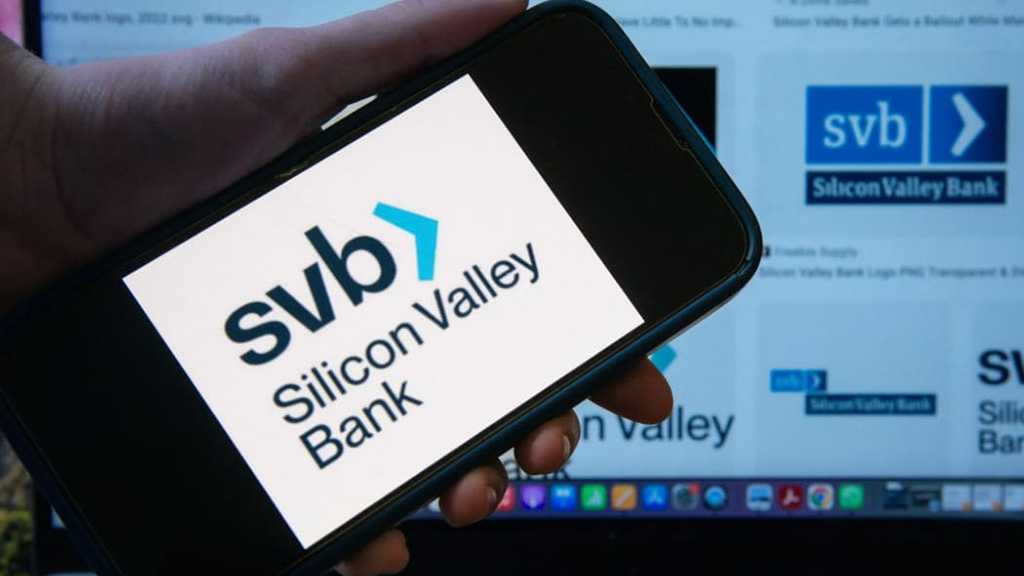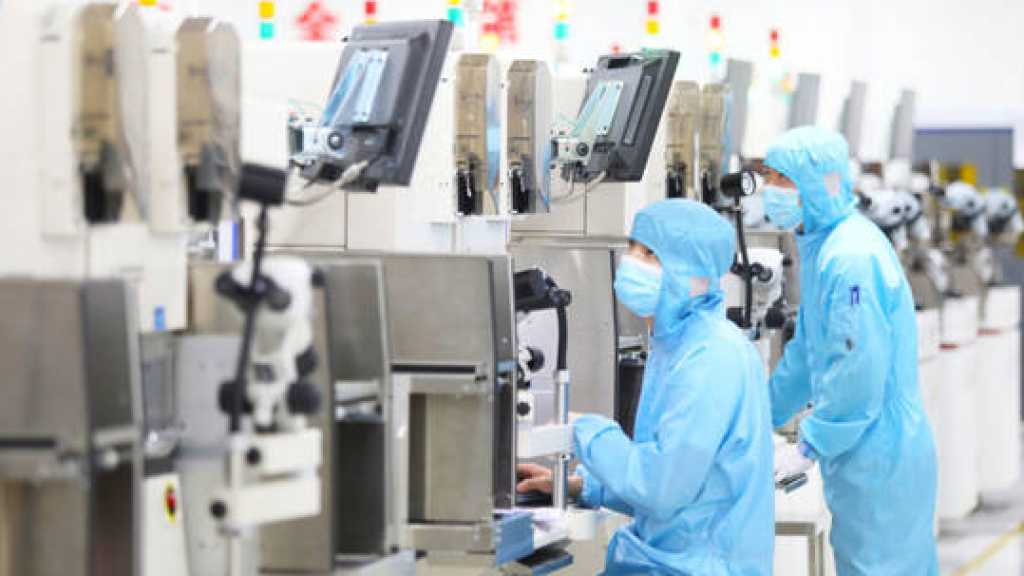Global Bank Stock Rout Deepens as SVB Collapse Fans Contagion Fears

By Staff, Agencies
Shockwaves from the collapse of Silicon Valley Bank further pounded global bank stocks on Tuesday as assurances from President Joe Biden and other policymakers did little to calm markets and prompted a rethink on the interest rate outlook.
Biden's efforts to reassure markets and depositors came after emergency US measures to shore up banks by giving them access to additional funding failed to dispel investor worries about potential contagion to other lenders worldwide.
Banking stocks in Asia extended declines on Tuesday, with Japanese firms hit particularly hard as anxiety about systemic risk sparked a wider rout in markets.
"Bank runs have started [and] interbank markets have become stressed," said Damien Boey, chief equity strategist at Sydney-based investment bank Barrenjoey. "Arguably, liquidity measures should have stopped these dynamics but Main Street has been watching news and queues – not financial plumbing."
A furious race to reprice interest rate expectations also buffeted markets as investors bet the Federal Reserve will be reluctant to hike next week.
Traders currently see a 50% chance of no rate hike at that meeting, with rate cuts priced in for the second half of the year. Early last week, a 25 basis-point hike was fully priced in, with a 70% chance seen of 50 basis points.
Analysts say uncertainty continues to dog the financial sector with investors still extremely worried about the health of smaller global banks, the prospect of tighter regulation and a preference to protect depositors at the expense of shareholders should other banks fail.
Major US banks lost around $90 billion in stock market value on Monday, bringing their loss over the past three trading sessions to nearly $190 billion.
Regional US banks were hit the hardest. Shares of First Republic Bank plunged more than 60% as news of fresh financing failed to reassure investors and rating's agency Moody's reviewed it for a downgrade.
Europe's STOXX banking index closed 5.7% lower. Germany's Commerzbank fell 12.7% and Credit Suisse slid 9.6% to a record low.
Biden said his administration's actions meant "Americans can have confidence that the banking system is safe," while also promising stiffer regulation after the biggest US bank failure since the 2008 financial crisis.
"Your deposits will be there when you need them," he said.
SVB's customers were given access to all their deposits on Monday and regulators set up a new facility to provide banks access to emergency funds. The Fed made it easier for banks to borrow from it in emergencies.
US bank regulators sought to reassure nervous customers on Monday who lined up outside SVB's Santa Clara, California, headquarters, offering coffee and donuts.
Regulators also moved swiftly to close New York's Signature Bank, which had come under pressure in recent days.
Canada's banking regulator took steps to begin daily check-ins with banks that will enable it to monitor their liquidity, The Globe and Mail reported on Monday.
In the money markets, indicators of credit risk in the US and euro zone banking systems edged up.
Emboldened by bets the Fed may have to slow its rate hikes, the price of gold, a popular safe-haven raced above the key $1,900 level.
Those expectations also weighed on Japan's banking stocks, which tumbled 6.7% in early Asian trade to their lowest since December.
Japanese financial institutions have sufficient capital buffers to absorb any losses caused by external risks, such as rising overseas interest rates, the Bank of Japan said on Tuesday. It did not directly mention the SVB collapse.
Companies around the globe with SVB accounts rushed to assess the impact on their finances. In Germany, the central bank convened its crisis team to assess any fallout.
After marathon weekend talks, HSBC said it was buying the British arm of SVB for one pound [$1.21]. HSBC's Hong Kong listed shares fell more than 5% on Tuesday.
While SVB UK is small, its sudden demise prompted calls for government help for Britain's startup industry, and its heavily exposed biotech sector in particular.




